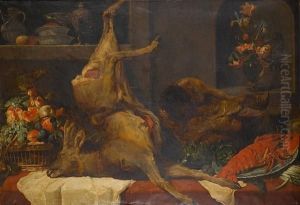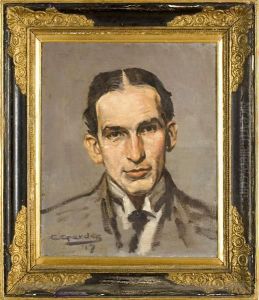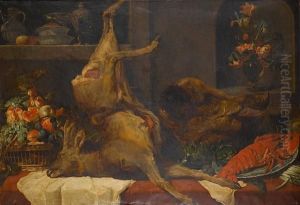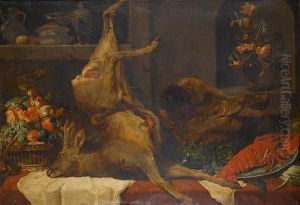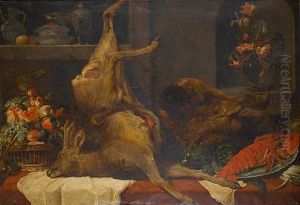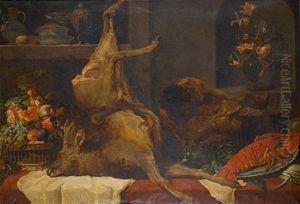Eduard Gerdes Paintings
Eduard Gerdes was a Dutch author, singer, and composer, born on February 14, 1821, in Amsterdam, Netherlands. Although he is not primarily known as a visual artist, his contributions to Dutch culture in the 19th century were significant, particularly in the realm of music and literature. Gerdes was initially educated in the field of law, but his passion for music and writing soon became the central focus of his career.
Gerdes' work was deeply influenced by his Christian faith, and he is best known for his religious songs and hymns, which have become staples in Dutch Protestant churches. His compositions were characterized by their simple melody lines and devotional character, making them accessible to a wide audience. In addition to his musical endeavors, Gerdes was a prolific writer, authoring a number of children's books, novels, and religious texts.
Throughout his life, Gerdes was active in the promotion of Christian music and education. He was one of the initiators of the Evangelische Gezangen, a collection of hymns for use in Protestant services, which played a significant role in the development of Dutch Protestant hymnody. Gerdes' legacy is also marked by his efforts in championing Sunday schools in the Netherlands, reflecting his commitment to religious education.
Despite his numerous contributions, Eduard Gerdes remains a relatively obscure figure outside of Dutch religious and cultural history. He passed away on August 2, 1898, in Naarden, Netherlands. His work continues to be appreciated by those within the Dutch Protestant community and serves as a testament to the role of music and literature in 19th-century religious life.
